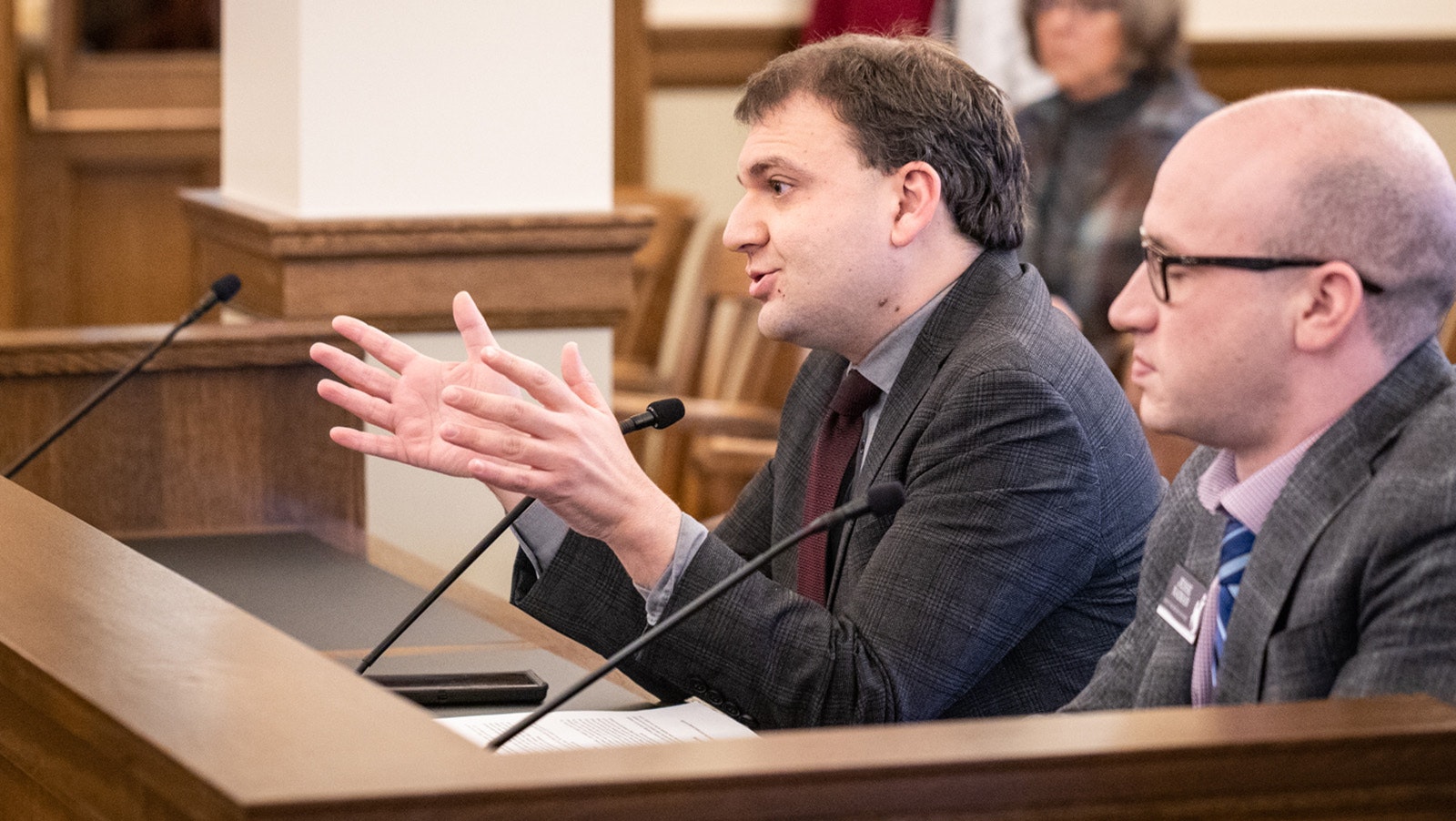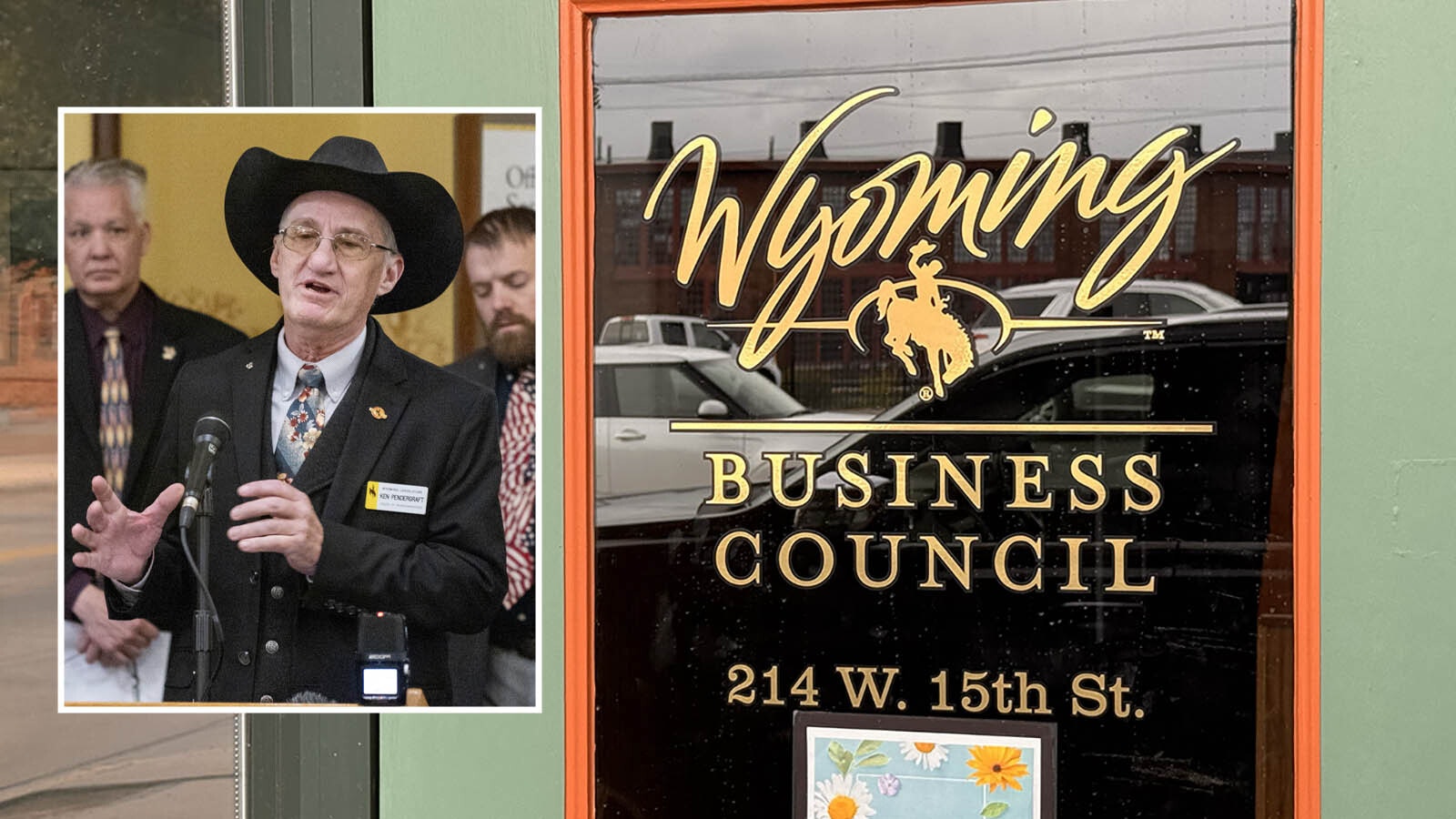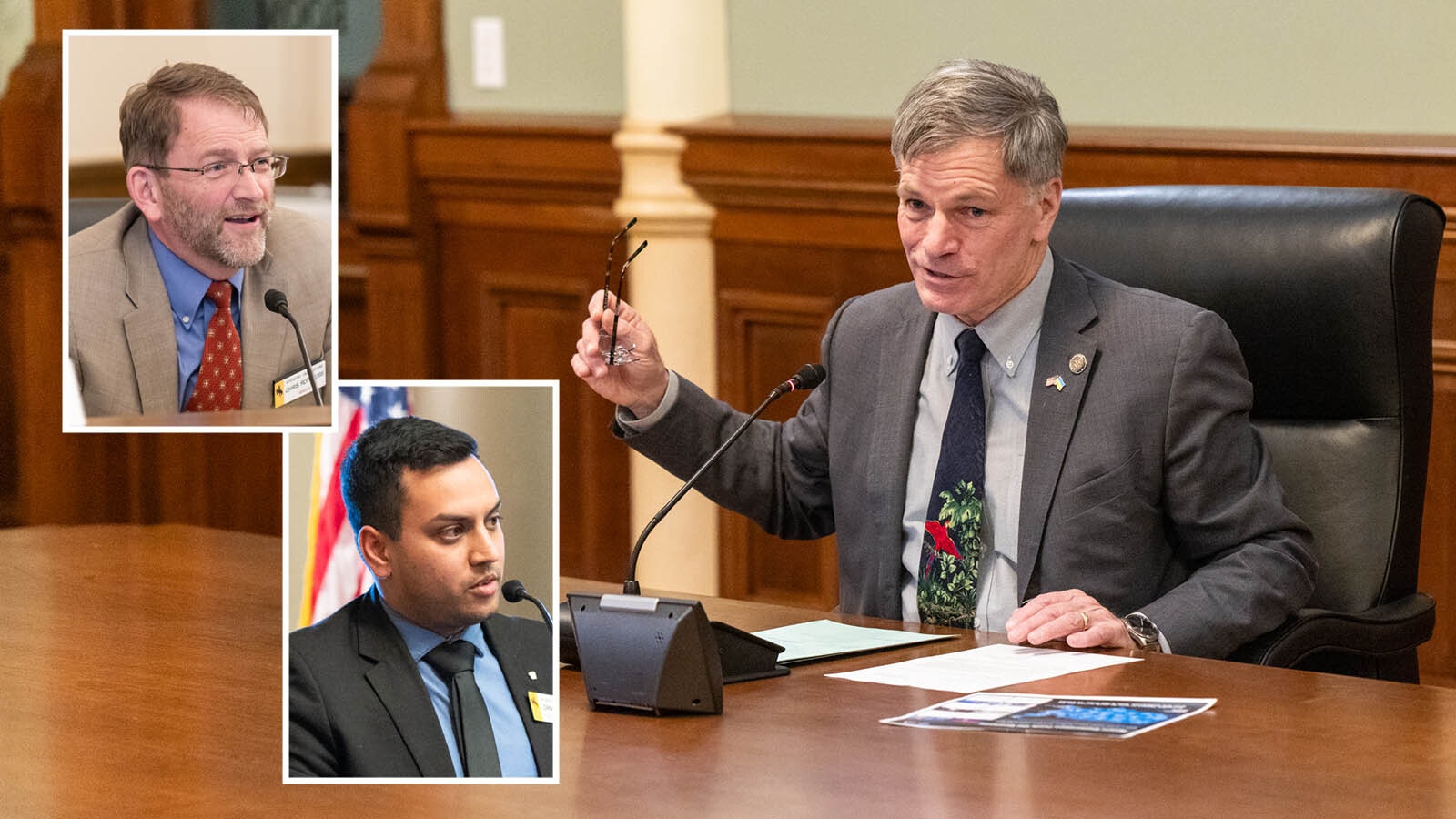Whether or not you support Wyoming Secretary of State Chuck Gray, it’s hard to argue the conservative political firebrand didn’t have a successful 2023 state legislative session.
During the session that ended Friday, bills that addressed three of his major 2022 campaign promises passed, including legislation preventing people from changing party affiliation to affect the outcome of another party’s primary election, tightening the state’s voter ID requirements and increasing transparency in state elections.
“Our administration is very pleased with the election integrity reforms passed this session,” Gray told Cowboy State Daily. “Working with the Wyoming Legislature to achieve these reforms was an incredible success for the people of Wyoming.”

Crossover Voting
The passage of House Bill 103 was likely the longest feather in Gray’s cap.
The bill aims to prevent crossover voting, the practice of people changing party affiliation to vote in another party’s primary. Efforts to eliminate crossover voting in Wyoming had been attempted before, but didn’t find traction and success until this year.
“The passage of HB 103 will strengthen Wyoming’s primary processes and is a huge moment for our state,” Gray said. “Our office was heavily involved in the passage of this legislation and we are excited to have delivered on another key election integrity measure. This was our No. 1 priority for the session.”
Gray testified for the bill multiple times, just as he did for nearly every other elections-related bill proposed during the legislative session. Just when it looked like the bill had died in a Senate committee, it was revived on the Senate floor and sent to a new committee with a much more supportive membership.
Sheridan civics activist Gail Symons pointed out that it was state Sen. Larry Hicks, R-Baggs, who revived the bill, not Gray.
“That bill passed despite Chuck, not because of Chuck,” Symons said.
HB 103 moves the deadline for when people can change party affiliation to the day before the Wyoming candidacy filing period opens. Up until now, people could change at anytime, including at the polls on primary election day.
Not Without Detractors
The flaw with that deadline is that most federal and statewide candidates announce their candidacy long before the candidate filing period opens. U.S. Rep. Harriet Hageman announced her candidacy nearly a year before the Republican primary and Gov. Mark Gordon announced his 2018 candidacy about a month before the filing period opened. Few people questioned whether the governor would run for reelection in 2022.
It’s believed most people who choose to crossover vote are inspired to do so by high-profile statewide races rather than local contests.
Gordon let HB 103 pass into law without his signature, expressing skepticism that the bill will prevent crossover voting in the future and saying its impact may be “more academic than real.”
Detractors of HB 103 have also said that it may prevent new voters from affiliating with a political party during the lockout period. Most elections in Wyoming are determined via partisan races in the August primaries.
The Wyoming County Clerks Association and bill sponsor state Rep. Jeremy Haroldson, R-Wheatland, have said this is not the case, but Haroldson has vowed to clean up some issues related to the bill for the 2024 legislative session.

Voter ID
Gray also was successful in helping pass House Bill 5, which adds unique identifying numbers, information relating to absentee ballot status and registration dates to the state’s voter registry list. He said this legislation will help increase election transparency.
Gray said the defeat of House Bill 6 was another win for transparency. It would have made cast ballots and all associated imagery and information not subject to public records requests.
Gray also worked to pass House Bill 279, which requires ID be provided to get an absentee ballot.
One bill that ran slightly contrary to strengthening voter ID requirements that Gray still supported was House Bill 79, which allows a Wyoming concealed carry permit to be used as an acceptable form of identification for in-person voting. Obtaining a concealed carry permit is an extensive process that requires multiple forms of identification to complete.
Absentee/Early Voting
A bill Gray opposed that would have let Wyoming municipalities run ranked-choice elections was defeated, as was a bill he opposed that would have changed the appointment process for statewide officials in Wyoming.
He successfully lobbied for a bill that reduces the early voting period in Wyoming by nearly half and lobbied for the passage of Senate File 131, which prohibits anyone besides a county clerk or secretary of state from distributing official absentee ballot request forms.
This was a practice employed by former congresswoman Liz Cheney during her 2022 campaign. Gray was an early opponent of Cheney in her 2022 reelection bid. When now U.S. Rep. Harriet Hageman was endorsed by former President Donald Trump in fall 2021, Gray dropped out of the race. Cheney was then defeated by Hageman in 2022.
On Friday, Hageman gave Gray a shoutout on Twitter and thanked him for his “strong leadership.”
Polarizing Figure
Gray said during his 2022 Secretary of State campaign that he would take a more aggressive approach to the job and actively push for certain laws and policies as part of an overarching fight for “election integrity.”
“I was elected on a platform of ensuring election integrity,” Gray told Cowboy State Daily in January. “A large part of ensuring election integrity includes advocating for statutory reforms to improve our elections processes.”
While mostly successful, Gray did fall short on a few bills he supported. Legislation that would have made ballot harvesting a felony died, and he made major compromises on a bill establishing laws related to the certification of federal election equipment.
Symons, who also lobbied on almost every elections-related bill, doesn’t believe Gray should take credit for getting bills passed and didn’t find his lobbying effective.
“He’s making claims for things he had no basis for doing,” she said.
But many Wyoming conservatives and lawmakers backed Gray’s efforts for improved election transparency, integrity and security during the session and implored legislators to do the same.
There are few secretaries of state in Wyoming history that have had as polarizing a beginning to their terms as Gray.
Symons believes Gray sees a lot of similarities between himself and Trump.
“The same reasons the far right loves him (Gray) is the same reason why everyone else hates him,” Symons said.
It Started On The Campaign Trail
Gray’s Republican primary race against Sen. Tara Nethercott, R-Cheyenne, was particularly combative.
A campaign finance complaint was filed on Gray by former Secretary of State Max Maxfield for the way he reported the source of his campaign spending. Gray put out information about Nethercott in campaign advertisements that was false and misleading.
Many were surprised to see Gray himself testify for and against bills for the Legislature. He even weighed in on an anti-abortion bill that has no impact on his office.
Symons believes the reason Gray was involved in so many bills in this year’s session is because he wants to be a “super legislator,” keeping one foot in the executive branch and another in the Legislature he called home for six years previously.
Most, but not all, prior secretaries have refrained from taking political positions on bills. Gray’s predecessor, Ed Buchanan, took mainly administrative stances and typically had his staff testify to the Legislature on his behalf.
When asked if his office plans to institute rule changes to make up for any legislative shortcomings over the interim session, Gray said, “Our office will continue to advocate for election security and integrity through statutory and regulatory reform.”
Gray did not offer an immediate reply when asked if his office had filled any of its staff vacancies. At the start of the session, more than a third of the positions in the Secretary of State’s office were open.





